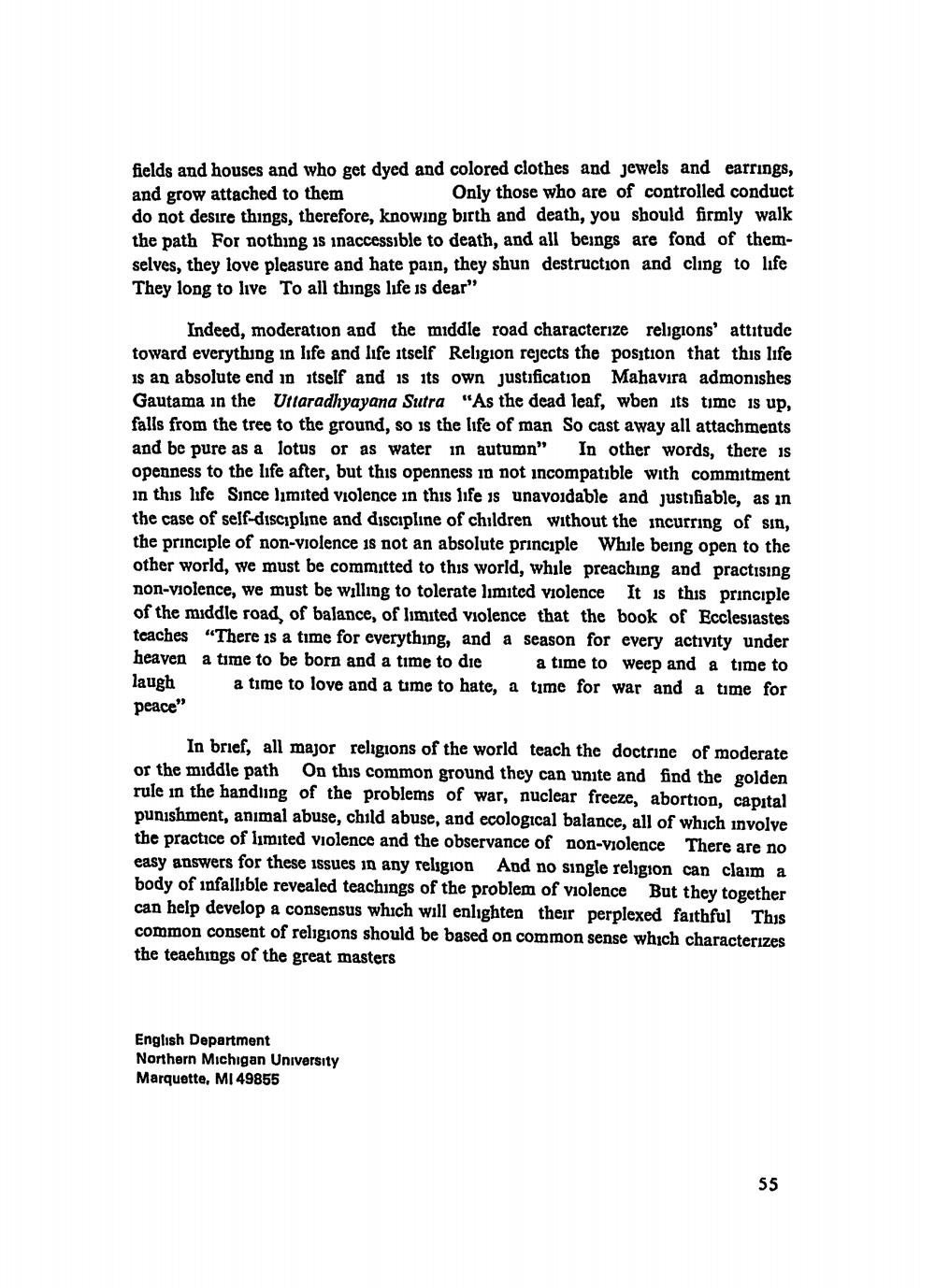________________
s and nousee
them
Only those who are
would firmly walk
fields and houses and who get dyed and colored clothes and jewels and earrings, and grow attached to them
Only those who are of controlled conduct do not desire things, therefore, knowing birth and death, you should firmly walk the path For nothing is inaccessible to death, and all beings are fond of themselves, they love pleasure and hate pain, they shun destruction and cling to life They long to live To all things life is dear"
Indeed, moderation and the middle road characterize religions' attitude toward everything in life and life itself Religion rejects the position that this life is an absolute end in itself and is its own justification Mahavira admonishes Gautama in the Uttaradhyayana Sutra "As the dead leaf, wben its time is up, falls from the tree to the ground, so is the life of man So cast away all attachments and be pure as a lotus or as water in autumn" In other words, there is openness to the life after, but this openness in not incompatible with commitment in this life Since limited violence in this life is unavoidable and justifiable, as in the case of self-discipline and discipline of children without the incurring of sin, the principle of non-violence 18 not an absolute principle While being open to the other world, we must be committed to this world, while preaching and practising non-violence, we must be willing to tolerate limited violence It is this principle of the middle road, of balance, of limited violence that the book of Ecclesiastes teaches “There is a time for everything, and a season for every activity under heaven a time to be born and a time to die a time to weep and a time to laugh a time to love and a time to hate, a time for war and a time for peace"
In brief, all major religions of the world teach the doctrine of moderate or the middle path On this common ground they can unite and find the golden rule in the handling of the problems of war, nuclear freeze, abortion, capital punishment, animal abuse, child abuse, and ecological balance, all of which involve the practice of limited violence and the observance of non-violence There are no easy answers for these issues in any religion And no single religion can claim a body of infallible revealed teachings of the problem of violence But they together can help develop a consensus which will enlighten their perplexed faithful This common consent of religions should be based on common sense which characterizes the teachings of the great masters
English Department Northern Michigan University Marquette, MI 49855
55




